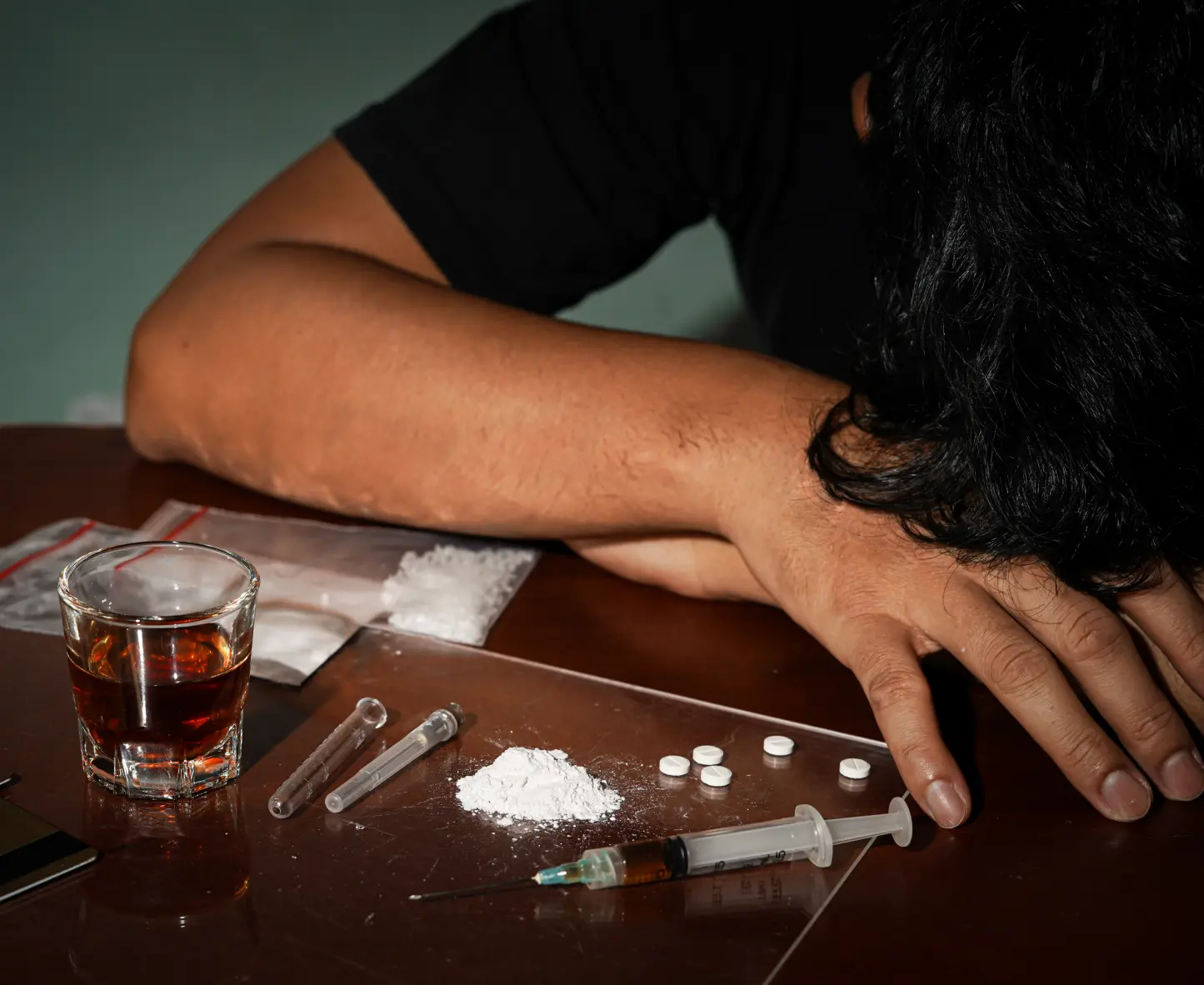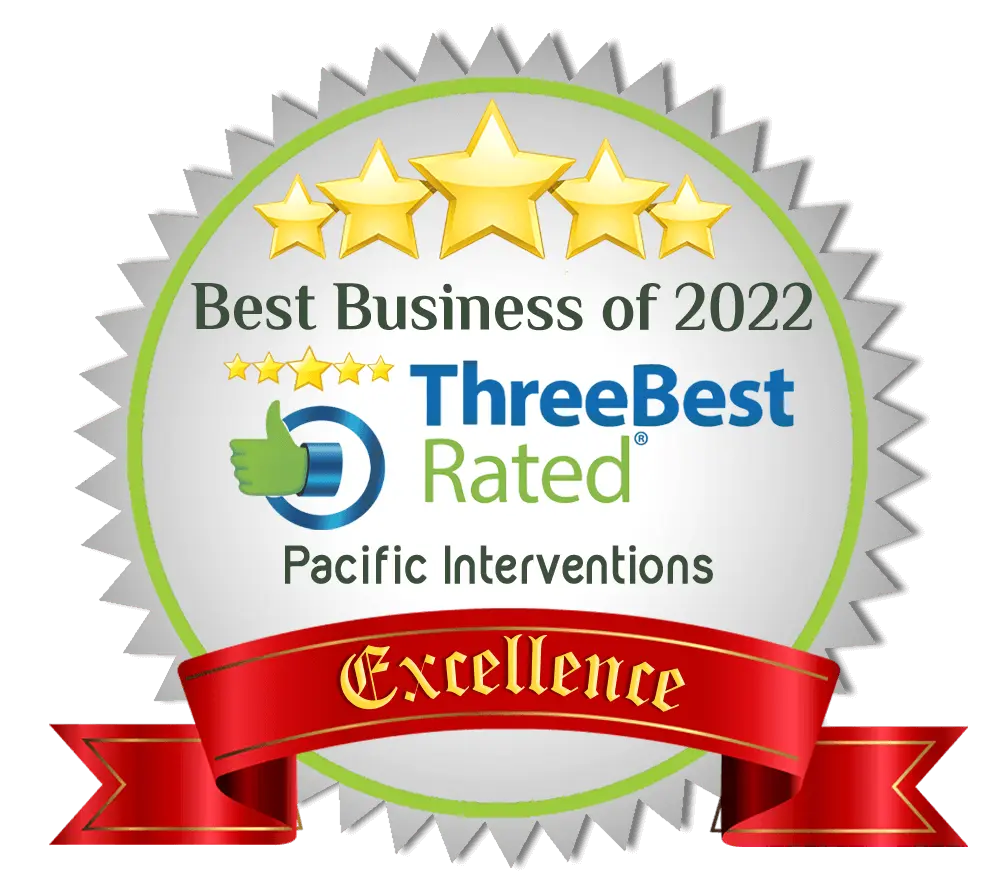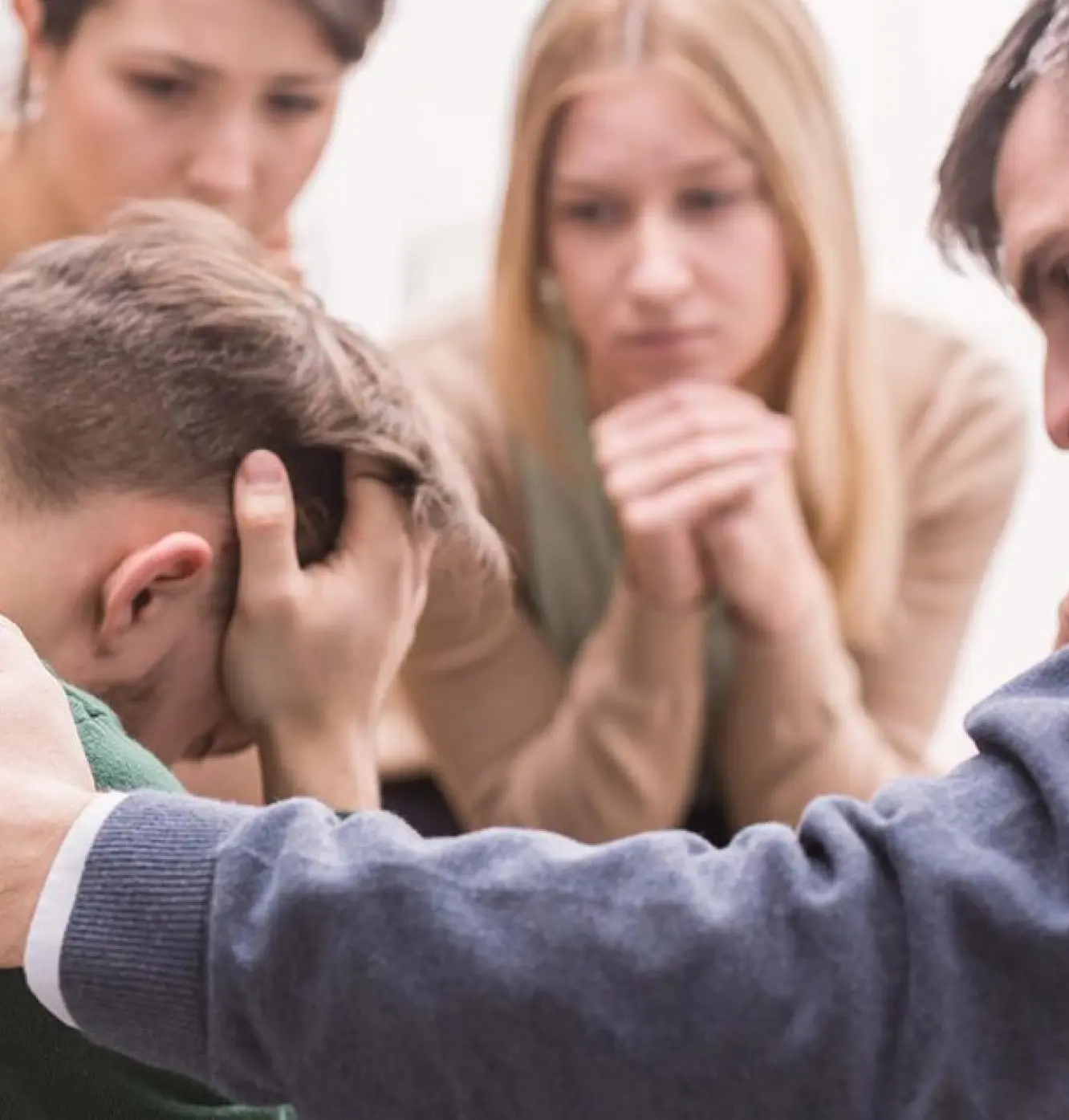Breaking the Cycle of Addiction:
Effective Family Strategies
Addiction has a 70% fatality rate and no one wants to see a loved one suffer or die from this disorder. However, the ongoing alcohol and drug addiction leaves the family confused, backed into a corner, heartbroken and at a loss for how to stop these destructive patterns. Very often family members will try confronting the person and fall into an ineffective pattern of nagging, begging, pleading, threatening or abandoning. Some family members may unintentionally enable the cycle of alcohol or drug use in their efforts to help. These well-meaning strategies can backfire by inadvertently providing negative reinforcement of the using pattern. This unintended consequence can and often does lead to the addicted individual becoming even more resistant to help. The psychology of alcohol and drug addiction must be managed effectively. With a psychological understanding of the condition, it is possible to formulate a path through the multiple layers of resistance, and prompt the addicted person to finally accept treatment.

Professional Intervention:
Key to Successful Addiction Recovery
There are neurochemical, physical and psychological problems going on that are best managed by a professional interventionist. These factors are just some of the complex issues that the interventionist needs to address. But first, the addicted person needs to accept help and get treatment. Hiring a professional alcohol and drug addiction interventionist is the best way to address this very complicated and misunderstood process of getting a resistant person to agree to help.
The alcohol and drug addiction interventions program you choose is going to make a significant difference in the likelihood of success. Our Interventionist methods of choice are backed by science and results. Let us explain!

Craft Model:
Confrontational & Non-Confrontational
There are 2 ways to approach alcohol and drug addiction interventions; Confrontational and Non-Confrontational. Most interventionists will use a confrontational approach. The confrontational approach was made popular by the TV show “Intervention”. This approach can be appropriate in extreme circumstances, especially when someone’s life is in imminent danger due to their use of drugs or alcohol. However, in most situations, a confrontational approach can have a detrimental effect. Attempting to force one into a drug rehab program, not only creates more tensions, but can also create a new bias towards that interventionist. Therefore, creating a safe and trusting relationship between the interventionist and the one clouded in judgement by the effects of alcohol and drug abuse will open the pathway to a successful rehabilitation program.
It is human nature to want to choose your own direction in life. The confrontational approach takes that choice away from your loved one. Remember your reaction the last time someone demanded you do something and didn’t give you a choice in the matter? Exactly! Confronting and forcing someone might get them into an addiction treatment center. However, when forced into a treatment center they can become angry, bitter and resentful, and not fully engage in treatment. This leads to a ineffective relationship between the addiction counsellors as well. We have seen this many times over the past 20 years with non-successful methods of addiction treatment. A missed window of opportunity that is often very few and far between, and can be fatal when missed. This opposition mindset can dramatically effect the therapeutic value of the treatment program. People who are forced to participate are much less likely to have a beneficial treatment outcome. Scientific research confirms the ineffective nature of the confrontational approach. This is exactly why through our meetings with the family and loved ones we are able to identify the most constructive course of action with the least amount of resistance. Our interventionists are trained in all objections that come up throughout the intervention process.
Alcohol and drug addiction treatment can cost thousands of dollars. Therefore, you definitely want the person to extract as much value as possible from the program. Especially because there may only be one chance to get this right. Our alcohol and intervention program is designed to prepare the individual for to be open-minded and willing once they enter the addiction treatment program. This dramatic difference in attitude will make involvement in treatment that much more productive and beneficial.
Thus, alcoholism and drug addiction can be addressed immediately and the drug rehab process is of value, not only financially, but most importantly, the mental health, physical well-being, emotional mindset, and overall psychological state of the one suffering receives the most benefits from the drug treatment program developed.
Craft Model:
Alcohol & Drug Addiction Interventions That Result in Success!
A Non-Confrontational Approach.
Our alcohol and drug addiction interventions are mainly based in Community Reinforcement and Family Training or CRAFT. This non-confrontational intervention approach has the best success rates for prompting resistant unmotivated people into accepting an addiction treatment program, or drug rehab in their nearby area, or alternatively, in a new area.
Together, applying a CRAFT Intervention approach we will get your loved one help.
It is vitally important to ensure your support does not cross into enabling, and that addiction does not cross your personal boundaries. Therefore, we must develop an atmosphere of support balanced with firm and specific boundaries. Drug rehab requires a combination of willingness, determination, trust, love, support, and highly structured professional addiction treatment interventionists and Clinical Counselors. With these adjustments in place, we will begin to create an opening for the conversations that will lead to a change in all parties’ mental health and social well-being. The return to peace in the household, the entire parties involved will all begin to be able to see this new and exciting transformation in the entire family system.
Note: a non-confrontational addiction intervention approach doesn’t mean we take a passive approach, it means that we’ll address this issue in a fashion that will produce the results you and our addiction treatment team want to provide you with. The result is that your loved one is motivated to enter treatment, whether that is drug rehab, our proven outpatient addiction treatment program, our Clinical Counseling Services Program, or any other avenue of rehabilitation gives you and your loved one a life free of the ultimately fatal road of addiction.

The Craft Alcohol & Drug Addiction Interventions Strategies Help in Other Ways
The Community Reinforcement and Family Training process is beneficial in many other ways. This intervention model supports and guides the family on how to effectively interact with the addicted individual now and in the future. This is important because creating or reestablishing functional relationships are very important for your loved one’s drug rehab and recovery, but also your own emotional health. Addiction disorders and problematic substance is something both the addicted individual and their family might have to deal with forever. Having the proper tools and skills to address your loved one’s addiction behaviours will serve everyone well. A CRAFT intervention will empower the family to see results now and prepare them for the years to come.
No intervention or Interventionist is the same as another.
Often times a combination of addiction intervention approaches is required. No addiction intervention is the same. Each intervention requires a unique and specifically tailored approach to the circumstances that individuals and families are dealing with.
Addiction is a powerful physical and psychological force. Without a skillfully structured intervention, addiction will continue to progress and result in even more devastating consequences for everyone involved. To learn more about different approaches Click Here!
Taking into account but not limited to; cultural beliefs, environmental circumstances, social connections, family systems, and mental health issues, our interventionists serve Vancouver, Surrey, Burnaby, Coquitlam, Richmond, Langley, Abbotsford, Maple Ridge, North Vancouver, White Rock and all other surrounding areas on demand. Our Intervention programs also include serving all of British Columbia, Alberta, Saskatchewan, Ontario, and eastern provinces. The trained intervention specialists in your area have the skills, training, and many years of experience which allow us to customize the most effective way to guide everyone involved through this difficult situation.






